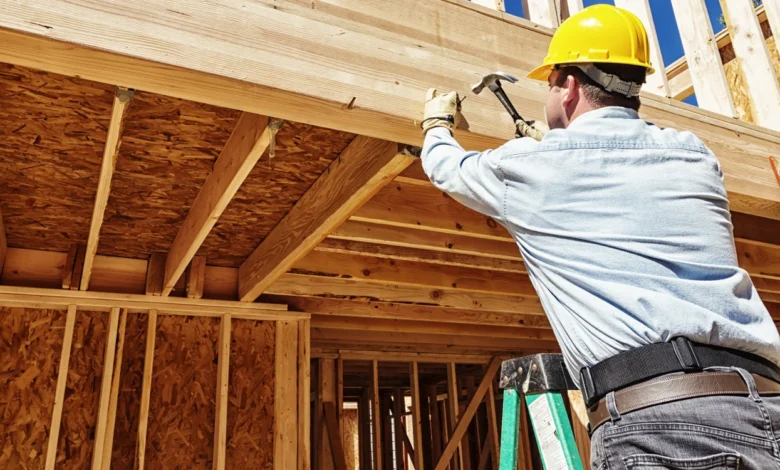Navigating Contractor Agreements for Home Renovation Projects

Understanding the legal framework surrounding contractor agreements is essential for homeowners embarking on home renovation or remodeling projects. These agreements outline the roles, responsibilities, timelines, payment structures, and liability protections that protect both homeowners and contractors. Without a well-drafted contractor agreement, misunderstandings and financial losses are more likely. This article explains the importance of legally sound agreements, what they must include, and how expert legal writing enhances their enforceability. We provide a detailed breakdown of how contractor agreements can be tailored to safeguard your renovation investment.
What is a contractor agreement and why is it important in home renovations?
A contractor agreement is a legally binding document that defines the expectations, roles, and legal obligations between a homeowner and a contractor during a construction or remodeling project. This document is important because it protects both parties in the event of disputes. The agreement ensures that the scope of work, materials, deadlines, payment schedules, and warranty clauses are clearly laid out. According to a 2023 study by the University of California, Berkeley’s Center for Law, households with formal agreements were 68% more likely to avoid legal disputes during renovation projects compared to those with informal or no agreements. Therefore, homeowners must ensure they use detailed and legally enforceable contracts.
What are the essential components of a legally sound contractor agreement?
The essential components of a legally sound contractor agreement include:
- A detailed scope of work
- A breakdown of project phases and timelines
- Payment terms and milestone schedules
- Insurance and licensing verification
- Change order procedures
- Termination and dispute resolution clauses
These elements create transparency and ensure accountability. For example, homeowners in Florida reported a 43% drop in litigation when using detailed contractor agreements that included binding arbitration clauses. Legal clarity in each component prevents assumptions and protects your financial and structural investment. Each clause must be customized to local building codes, licensing laws, and specific project risks. A legally trained professional should review or draft the agreement to meet these standards.
Can legal writing services help create contractor agreements that stand up in court?
Yes. Legal writing services help create contractor agreements that stand up in court by ensuring the language is enforceable, jurisdiction-specific, and aligned with prevailing construction law. Expert writers understand contract law and embed essential clauses that deter breach. Homeowners frequently use LegalWritingExperts content services to customize contractor agreements that hold up during legal scrutiny or arbitration. These professionals understand both legal expectations and the practical needs of home construction. They build agreements with clarity, precision, and foresight. A poorly drafted contract can result in a court deeming it void for vagueness or lack of legal intent. Avoiding this requires specific terminology, defined roles, and compliance with local consumer protection statutes.
Read Also: Why You Require a Home Safety Plan
Do poorly written agreements increase the risk of contractor fraud?
Yes. Poorly written agreements increase the risk of contractor fraud because vague or incomplete documents fail to bind the contractor to deliver specific outcomes. According to a 2022 report by the Better Business Bureau (BBB), contractor scams rose by 37% in regions where informal or generic agreements were used. Fraudulent contractors often exploit loopholes such as undefined scope, missing license requirements, or omitted payment schedules. When agreements are drafted by non-professionals, they frequently lack dispute mechanisms and exit clauses. Homeowners should ensure their contracts are reviewed by legal professionals who understand home construction laws and fraud prevention mechanisms.
How can homeowners ensure contractor agreements comply with local laws?
Homeowners can ensure contractor agreements comply with local laws by including jurisdiction-specific clauses, referencing applicable licensing regulations, and consulting a legal writing professional. State requirements for construction projects differ widely. For example, California mandates inclusion of mechanics lien warnings in home improvement contracts exceeding $500. Florida requires notice of contractor licensing in all advertisements and agreements. Failure to comply with these rules can invalidate the agreement or result in administrative penalties. Homeowners can use local legal counsel or national legal writing services familiar with state regulations to ensure compliance.
Should contractor agreements include dispute resolution and termination clauses?
Yes. Contractor agreements should include dispute resolution and termination clauses to protect both parties from breach of contract. Dispute resolution clauses outline how conflicts will be handled—typically via mediation or arbitration. Termination clauses detail the conditions under which either party can legally end the agreement. These provisions are important because they reduce litigation risks and expedite conflict resolution. According to the American Arbitration Association, parties using pre-agreed arbitration clauses in home renovation contracts resolved disputes 48% faster than those without them. Homeowners should request these clauses during contract drafting, ideally written in plain legal language that all parties can understand.
What risks do homeowners face without a legally reviewed contractor agreement?
Homeowners face risks including financial loss, construction delays, code violations, lien claims, and litigation if they proceed without a legally reviewed contractor agreement. In a survey by Harvard’s Joint Center for Housing Studies (2023), 58% of homeowners who sued contractors lacked legally binding agreements. Legal gaps in contracts often lead to disputes over costs, material substitutions, and workmanship standards. In the absence of clear warranties or insurance verification, homeowners may bear the cost of repairs or code violations. Engaging a legal writing service to draft or review your agreement mitigates these risks and enhances enforceability.




